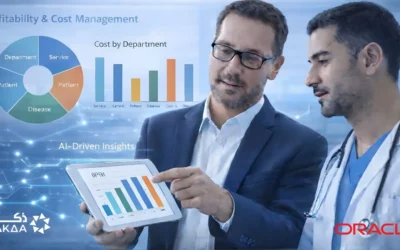How AI Machine Learning Helps Banks Lend More Wisely
Imagine you’re a loan officer at a bank. Every day, people come to you with hopes and dreams – starting a business, buying a new home, or maybe finally paying off student loans. Your job is to assess their situation and decide whether lending them money is a good idea.
But here’s the challenge: how do you know if someone will be able to repay their loan? This is where things can get tricky. Traditionally, loan officers relied on gut feeling and credit scores to make these decisions. While important, these methods have limitations.
This is where data analytics steps in as a game-changer for the finance industry. By crunching vast amounts of data, banks can gain a deeper understanding of their borrowers and make smarter lending decisions. Think of it as having a super-powered financial crystal ball!
Unveiling the Mystery Borrower: How Data Analytics Works
So, what kind of data are we talking about? Here are a few key examples:
-
Transaction History:
Banks can analyze your bank statements to see your spending habits, income sources, and how well you manage your money.
-
Credit History:
This includes your credit score, past loan repayments, and any defaults you may have had.
-
Demographic Information:
Age, location, and even education level can all be factors that influence your financial stability.
By combining all this information, data analytics can create a more complete picture of a borrower’s financial situation. This allows banks to move beyond a simple credit score and assess the likelihood of someone repaying their loan.
Benefits of AI/ML for Loan Decisions
Here’s how data analytics is making waves in the finance industry:
-
Reduced Loan Defaults:
By identifying borrowers at higher risk of defaulting, banks can avoid lending money they might never see again. This protects the bank’s financial health and allows them to offer lower interest rates to reliable borrowers.
-
Helping More People Get Loans:
Data analytics can uncover hidden creditworthiness in people who might have been rejected in the past based solely on credit scores. This opens doors for those who may have been shut out of traditional lending options.
-
Faster Loan Approvals:
Data analytics can automate some aspects of the loan application process, making approvals quicker and more efficient for both borrowers and banks.
A Real-World Example: Success Story with Data Analytics
Let’s look at a real example. Imagine a bank traditionally offered home loans only to people with a credit score above 780. This excluded many responsible borrowers who might have just started building their credit history. By implementing AI/ML Algorisms, the bank could consider other factors, such as on-time rent payments and stable employment. This allowed them to approve loans for more people who were likely to be good borrowers, even if their credit score wasn’t perfect.
This resulted in a win-win situation. The bank expanded its customer base and earned more interest from new loans, while responsible borrowers were able to achieve their dream of homeownership.
The Future of AI in Finance: Looking Ahead
As data analytics continues to develop, we can expect even more exciting advancements in the finance industry:
-
Personalized Loan Offers:
Imagine receiving loan offers tailored to your specific financial situation and needs. Data analytics can help banks create customized loan packages with competitive interest rates for each borrower.
-
Improved Fraud Detection:
Sophisticated data analysis can identify suspicious activity and prevent fraudulent loan applications, protecting both banks and borrowers.
-
Financial Wellness Tools:
Banks can leverage data to offer customers personalized financial advice and tools to help them manage their money better.
Conclusion: Data Makes Dollars and Sense
Advanced Data analytics is revolutionizing the way banks operate, making lending decisions more accurate, efficient, and fair. This benefits everyone involved – from banks who can manage risk more effectively to borrowers who have greater access to loans and financial tools. As data analytics continues to evolve, the future of finance promises to be a more inclusive and data-driven landscape.
Call to Action:
Are you curious about how data analytics might impact your finances? Share your thoughts in the comments below! Let’s discuss how this powerful tool can help people achieve their financial goals.




